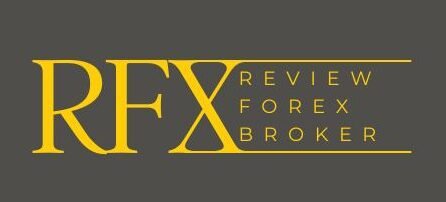Forex trading is a global endeavor, attracting participants from various countries with differing regulatory frameworks. Understanding these regulations is crucial for traders seeking to choose a reputable broker and ensure a safe trading environment. This blog will explore how forex broker regulations vary by country, their implications for traders, and the importance of regulatory compliance.
1. The Importance of Regulation in Forex Trading
Regulation serves to protect traders by ensuring that forex brokers adhere to specific standards of conduct. Key benefits of regulation include:
- Investor Protection: Regulatory bodies help safeguard traders’ funds through measures such as segregated accounts and compensation schemes in case of broker insolvency.
- Market Integrity: Regulations aim to prevent fraudulent practices and ensure that brokers operate transparently.
- Fair Trading Practices: Regulatory oversight helps maintain a level playing field, reducing the risk of market manipulation.
2. Major Regulatory Bodies Around the World
Different countries have established their own regulatory authorities to oversee forex trading. Here are some of the most notable regulatory bodies:
2.1. United States: Commodity Futures Trading Commission (CFTC) and National Futures Association (NFA)
In the U.S., forex brokers are regulated by the CFTC and must also be members of the NFA. Key regulations include:
- Segregation of Funds: Brokers must keep client funds in separate accounts from their operational funds.
- Leverage Limits: The maximum leverage allowed is typically 50:1 for major currency pairs.
- Reporting Requirements: Brokers must adhere to strict reporting and compliance standards.
2.2. United Kingdom: Financial Conduct Authority (FCA)
The FCA is one of the most respected regulatory bodies globally, known for its stringent rules. Key features include:
- Client Fund Protection: The Financial Services Compensation Scheme (FSCS) provides coverage for client funds up to £85,000.
- High Standards of Conduct: Brokers must meet high standards of transparency and conduct.
- Leverage Limits: The FCA imposes leverage caps, typically set at 30:1 for retail clients.
2.3. European Union: European Securities and Markets Authority (ESMA)
In the EU, ESMA sets regulations that member countries must adhere to. Important aspects include:
- Leverage Limits: Similar to the FCA, ESMA has set leverage limits of up to 30:1 for retail traders.
- Investor Protection: Measures are in place to protect client funds and ensure brokers operate fairly.
- Standardized Regulations: ESMA aims to harmonize regulations across EU member states, providing consistency in oversight.
2.4. Australia: Australian Securities and Investments Commission (ASIC)
ASIC is known for its robust regulatory framework, which includes:
- Client Fund Security: Brokers must keep client funds in segregated accounts.
- Transparency Requirements: Brokers are required to provide clear information about their services and fees.
- Leverage Limits: Retail leverage is limited to 30:1, similar to the FCA and ESMA.
2.5. Asia: Varying Regulations
Regulations in Asia can vary significantly by country:
- Japan: The Financial Services Agency (FSA) enforces strict regulations, including leverage limits of 25:1.
- Singapore: The Monetary Authority of Singapore (MAS) has a reputation for high regulatory standards, requiring brokers to maintain adequate capital and adhere to strict compliance measures.
- China: Forex trading is heavily restricted, with the People’s Bank of China regulating foreign exchange activities, making it difficult for foreign brokers to operate.
3. Implications for Traders
Understanding how regulations differ by country can significantly impact traders’ experiences:
3.1. Safety of Funds
Traders should prioritize brokers regulated by reputable authorities, as these brokers are more likely to implement robust safety measures for client funds.
3.2. Leverage and Margin Requirements
Regulatory differences can lead to varying leverage limits, affecting trading strategies. Traders should be aware of the leverage offered by their broker and the associated risks.
3.3. Access to Markets
Regulations may limit access to certain trading instruments or markets. Traders should investigate their broker’s offerings to ensure they align with their trading goals.
4. Choosing a Regulated Forex Broker
When selecting a forex broker, consider the following tips:
- Verify Regulation: Always check the regulatory status of a broker and confirm their registration with the relevant authority.
- Read Reviews: Look for feedback from other traders regarding their experiences with the broker, particularly related to support and compliance.
- Assess Trading Conditions: Evaluate the trading conditions, including spreads, leverage, and available trading platforms, to ensure they meet your needs.
5. Conclusion
Forex broker regulations vary significantly by country, reflecting different approaches to investor protection and market integrity. Understanding these differences is crucial for traders seeking a reliable broker and a secure trading environment. By choosing brokers regulated by reputable authorities, traders can enhance their chances of a successful trading experience while minimizing risks associated with fraud and poor practices. As the global forex market continues to evolve, staying informed about regulatory changes will remain essential for all traders.

